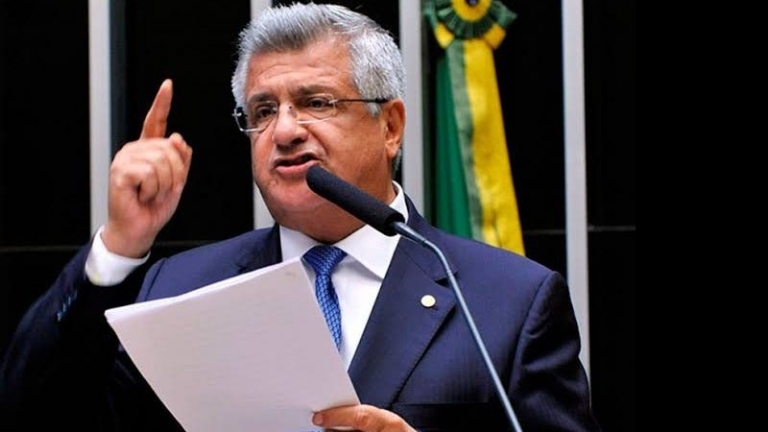

GMB – How are you, Deputy Bacelar?
Bacelar – It's a pleasure to talk to you today, a day after a Senate decision on a project that had been dragging on for five years. Sports betting has been authorized since 2018, but due to the negligence of the previous government, we spent five years without regulation. Bets were happening all over Brazil, approved, and the government was not collecting revenue. Not only did it fail to collect revenue, but it also lost billions of realess by not regulating and also contributed to diversions. The scandal investigated by the Public Prosecutor's Office and the Federal Police involving match-fixing is a result of the lack of regulation. Without regulation, we opened the market to irregularities and corruption.
From this perspective, I want to congratulate the Federal Senate for making this decision. Unfortunately, the Senate missed a great opportunity to provide more advanced legislation for Brazil. We have been living with this history for 80 years. Sports betting and other types of bets take place all over Brazil. What kind of conservatism is this? What kind of submission to religious principles interferes in the life of a secular state? It is not possible for this story to remain unresolved in Brazil. There is no option of not playing. The only option we have is legal or illegal gambling.
The changes made by the Senate, through conservative and religious opposition, removed the possibility for Brazil to generate about R$ 5 billion per year in taxes from sports betting. According to industry experts, it has dropped to R$ 700 million. A huge loss for Brazil.
And why does this happen? Because the Senate made two decisions that lead to a decrease in taxation. First, the prohibition of virtual bets. If you want, you can go to any website in the world and place bets in Brazil right now. However, in Brazil, you won't have the protection of the law or tax collection. The prohibition of online betting encourages the illegal parallel market. Online betting will continue to happen. Another problem that has no justification is the prohibition of virtual bets in a physical environment.
The project approved in the Senate brought advances, such as the reduction of taxation from 18% to 12% and the reduction of Income Tax on prizes, but it fails in other aspects. What concerned me the most about the Senate's decision is that it showed that we do not have the conditions, in the correlation of forces, to approve Bill 442/91, which legalizes other games in Brazil. Brazilian society needs to be attentive to this.
The debate in the Senate was very shallow. They used untrue information and outdated theories. The whole world is playing. Just look at the cruises, which open their casinos when they leave Brazilian territorial waters. There is gambling in Argentina, Uruguay, the United States, and even in Islamic countries. Here in Brazil, we continue with this hypocrisy that has lasted for 80 years, preventing the country from collecting revenue and hindering the development of tourism in Brazil. We are advocating for the safety of the player, in addition to job creation, taxes, and income.
Does the Chamber of Deputies have the ability to reverse the situation you mention? What will be the procedure in the Chamber?
I believe that the President of the Chamber, Arthur Lira, will likely submit an urgency request, and the project will return to the Plenary. The president appoints a rapporteur to provide an opinion, probably Deputy Adolfo Viana (PSDB-BA), who was the initial rapporteur for the project in the Chamber. We will then decide on the Senate's modifications. What was approved by the Chamber remains approved. What we will decide is whether we accept or reject the Senate's changes.

Will it be a Plenary report or will it be reported in advance and then presented in Plenary?
I believe it will be a Plenary report since the matter has already been extensively debated in the Chamber, and we already have a position and an understanding of the problem. We have experts who have studied this issue, and I believe the matter is well-rounded and the discussion exhausted. Therefore, it's just a matter of voting on the Senate's amendments, and here I appeal to my fellow deputies to reverse these decisions of the Federal Senate.
What is the deadline for it to return to the Plenary, as we are only one week away from legislative activities this year?
I haven't spoken with our president, Arthur Lira, who is responsible for preparing the Order of the Day. I believe the matter will arrive in the Chamber today, and we may be able to vote next week. I know we have a very busy agenda, with discussions on vetoes, tax reform, budgetary law, etc. But it is essential for Brazil to collect revenue from sports betting.
You mention the budgetary law. It projected revenue of up to R$2 billion from sports betting. As approved in the Senate, it won't reach even a third of that?
As approved, it drops to R$700 million, while it was expected, in a more optimistic estimate, to reach R$5 billion, and in a less optimistic estimate, R$2 billion. And this in a country that needs money. If we can't tax gambling, should we tax tithes?
Do you believe the matter can be voted on next week?
I will go to Brasília early next week to discuss the agenda for this matter with the President of the Chamber.
In your assessment, are the deputies open to reversing the end of online gambling and betting in physical environments?
The balance of power in the Chamber is more favorable than in the Senate, so I believe the Chamber will reverse these decisions and send the project for the president's approval, and then we will begin another battle, which is the approval of Bill 442/91. I must reiterate that I was very concerned about the outcome of the vote on amendments to Bill 3626 in the Senate. So, there will be a lack of votes for 442/91, and we cannot let that happen. We are condemning Brazil to delay, as the bets are there, operating and earning money. And Brazilian society is not getting the return it should have in terms of jobs, support for sport and everything else.
I say again, let's set aside hypocrisy because there is no option of not having gambling. We must decide whether we want regulated gaming or if we want the illegal market to dominate. We must decide whether the government should collect taxes from gaming and betting or not. Official bets represent over R$ 25 billion, such as Mega-Sena. Gambling is gambling, whether it's Mega-Sena, jogo do bicho, or casinos. Everything is a bet. We continue with hypocrisy and market restrictions, with the government able to support gambling but not private entrepreneurs. In Brazil, gambling is a state monopoly.

The reduction of the tax on GGR from 18% to 12% and the income tax for the bettor, as well as the extension of the concession period to 5 years and up to 3 brands, could promote a good channeling to the regulated market?
Positive points. I want to celebrate these decisions, which should have been made five years ago and were not made by the previous government. These points are quite positive and have been improved by the Senate, such as the reduction of the tax for the operator. A tax of 18% would practically make the business unviable because, with other contributions, it would exceed 30%. The decrease in income tax is also very positive. These are positive aspects that the project brings.
But on the other hand, the requirement for a Brazilian partner to contribute 20% is absurd, as well as limiting operators to one state, which is not justified. So, they are liberal in rhetoric when it comes to economic issues, but conservative and regressive when it comes to social issues, creating a hypocritical, conservative, and backward reaction.
Source: Exclusive GMB